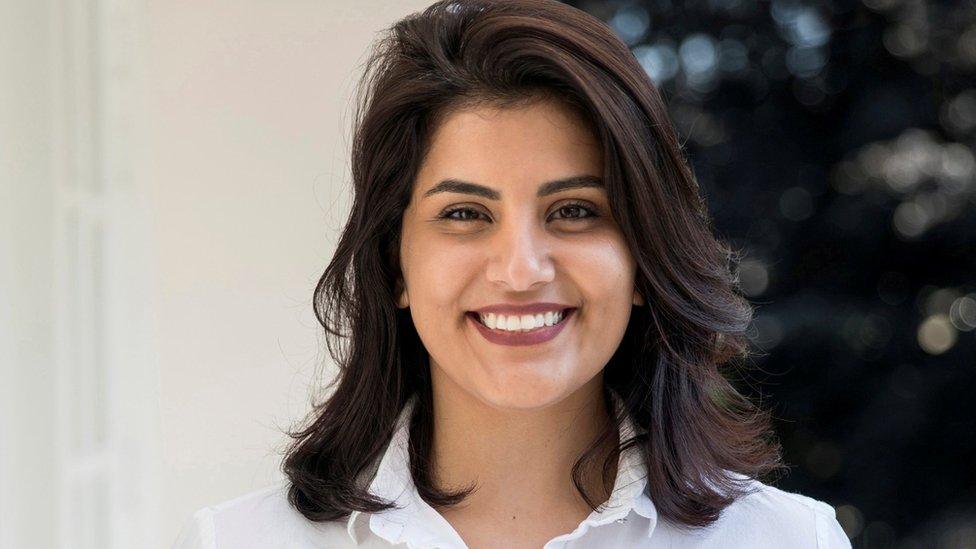Loujain al-Hathloul: UN experts alarmed by jailed Saudi activist's health
- Published

Loujain al-Hathloul was prominent in the campaign to win the right for Saudi women to drive
A UN women's rights committee has expressed alarm at the worsening health of Saudi activist Loujain al-Hathloul, who is on hunger strike in prison.
Ms Hathloul, 31, began refusing to eat last month in protest at her conditions in detention.
The UN committee urged King Salman to order her immediate release.
Ms Hathloul was prominent in the campaign to win the right for Saudi women to drive, but was arrested weeks before the ban was lifted in 2018.
She was among about a dozen activists held on national security grounds as part of an apparent crackdown on the women's rights movement.
Members of Ms Hathloul's family said she was held incommunicado for three months following her arrest, and that she was subjected to electric shocks, whippings, and sexual harassment. They also alleged that that she was offered freedom if she agreed to say she was not tortured.
The Saudi government denied the allegations of torture.
In March 2019, Ms Hathloul and 10 other women's rights advocates went on trial at the Riyadh Criminal Court.
Several were accused of promoting reforms and women's rights; demanding an end to the male guardianship system through participating in online and offline campaigning; and contacting international human rights organisations, the UN, and foreign diplomats and journalists.
They have yet to be convicted, although some have been released on bail.
On 26 October, Ms Hathloul began a hunger strike over the conditions of her detention, which reportedly include not being allowed to have regular contact with her family or to exercise regularly.
"Loujain cannot survive in prison when she doesn't know what tomorrow is made of," her sister Lina told the ģÉČËŋėĘÖ World Service.
Allow Twitter content?
This article contains content provided by Twitter. We ask for your permission before anything is loaded, as they may be using cookies and other technologies. You may want to read and before accepting. To view this content choose âaccept and continueâ.
"She doesn't know when the next visit will be. She doesn't if it's going to be in a year's time or if it's going to be tomorrow... She said: 'I will either die, or I'm at least allowed to hear my parents on a regular basis.'"
The UN Committee on the Elimination of Discrimination against Women (CEDAW), which comprises 23 independent experts from around the world, that it was "gravely concerned about Ms Hathloul's physical and mental health and well-being."
"We urge the Saudi authorities to protect her rights to life, health, and liberty and security of person at all times, while fully respecting her freedoms of conscience and expression, including by going on hunger strike," it added.
The committee appealed to King Salman Al Saud to use his royal prerogative powers to ensure the release Ms Hathloul from detention ahead of International Women Human Rights Defenders Day on 29 November.